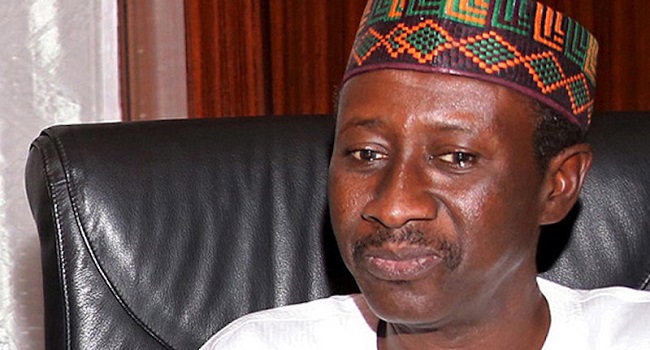Politics
NSA, armed forces draw up 2019 National Security Strategy

The Office of the National Security Adviser, NSA and the armed forces, Thursday, met on Thursday in Abuja to draw up a policy document to tackle banditry, small arms proliferation, terrorism and kidnapping in the country, the National Security Strategy.
The new document is to replace the existing one that was drawn up in 2014 under former NSA, Sanbo Dasuki.
Speaking at the validation meeting, the National Security Adviser, Maj. Gen. Babagana Monguno (retd.), said the 2019 strategy document would serve as a framework of action to address security concerns, internal and external threats facing Nigeria.
Monguno in his address at the validation session meeting of the 2019 National Security Strategy, read by the Director, Policy and Strategy Office, Aminu Lawwal, noted that the document was being formulated to provide direction for the military and other stakeholders in defeating the threats to Nigeria’s national interests.
The NSA said: “Nigeria has contended with various security challenges which include terrorism, kidnapping, militancy, small arms proliferation, banditry and pastoralists-farmers’ conflicts. The security of Nigeria remains not just the primary concern of the government but the number one and most important concern.
Read also: As crisis brews, APC NEC members demand emergency meeting with NWC
“Every security challenge, irrespective of where it occurs, potentially puts at risk the livelihood and well-being of citizens.
“The strategy will place emphasis on human security in order to enhance the social wellbeing of the citizenry. Therefore, we need to address socio-economic concerns such as poverty and unemployment as well as corruption, security and the economy which are the key focal points of this administration.
“The National Security Strategy document is designed to be reviewed after a five-year period or as the contemporary environment dictates. It is in this light that a committee was convened to collate inputs from a wide range of stakeholders comprising ministries, departments, agencies, civil society organisations and security experts.
“Most of the threats identified in the 2014 document are still present with us. We must thus continuously assess the current and future threat environment and develop appropriate resilience and capacity.”
Also speaking at the meeting, the Chairman of the Review Committee and former ambassador to Angola, Layiwola Laseinde, said some new security threats currently facing the country necessitated a review of the 2014 document.
Join the conversation
Support Ripples Nigeria, hold up solutions journalism
Balanced, fearless journalism driven by data comes at huge financial costs.
As a media platform, we hold leadership accountable and will not trade the right to press freedom and free speech for a piece of cake.
If you like what we do, and are ready to uphold solutions journalism, kindly donate to the Ripples Nigeria cause.
Your support would help to ensure that citizens and institutions continue to have free access to credible and reliable information for societal development.
























